A group, Citizens’ Engagement on Police Reform in Nigeria, North Central zone, has proffered solutions to the inefficiency of the policing system in Nigeria.
The group came up with the resolution after two-day workshops held in Ilorin, Kwara State Capital.
The workshop which began on Wednesday and ended on Thursday was facilitated by a non-governmental organization, CLEEN Foundation in partnership with the United Nations Development Programme (UNDP).
The engagement had in attendance critical community stakeholders such as civil society organizations, community development associations, a representative from the state Ministry of Justice, representative from human rights Commission, a representative of Community Policing and Inspector General of Police, Kayode Egbetokun, represented by Commissioner of Police in Kwara State, CP Victor Olaiya and many more.
Speaking on the theme of the workshop, “Policing and Police Reform In Nigeria” a renowned Sociologist, Professor Etannibi Alemika, noted that policing is everyone’s responsibility.
“Policing begins with everyone of us, we all have a responsibility to protect our properties, lives, and communities.
“Pre-colonial African societies employed different mechanisms for policing. Prior to colonial rule, residents of African villages and towns bore responsibilities for policing and safeguarding their community from criminals within and invaders from outside.
“Most had no formal police employees but depended on an array of groups for policing amongst which were elders, priests, diviners, age-grades/age sets, and hunters. Policing was carried out along with “regular jobs as farming, trading, fishing, weaving, smithery and the like.
“Colonial rulers undermined these traditional policing actors and mechanisms. It introduced a Western-type policing system, which forms the bedrock of the contemporary government policing system in the country.
“The colonial and western forms of police forces established in the country have failed to serve the citizens efficiently and satisfactorily.”
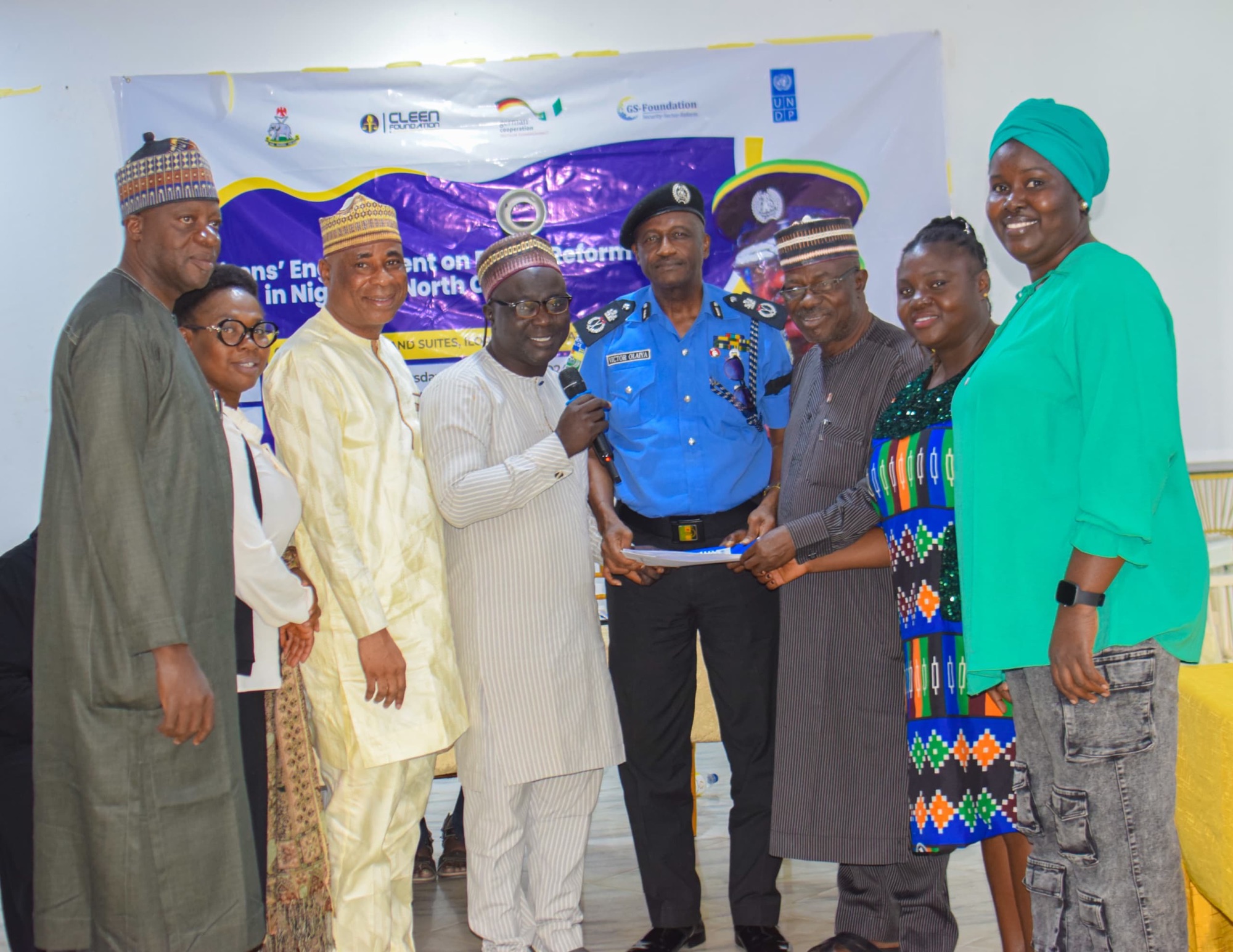
Kwara State Commissioner of Police, CP Victor Olaiya at the middle receiving Workshop Communique at the event held on Thursday 7/11/2024.
Highlighting some of the challenges and constraints of the Nigeria Police Force, he said “The Nigeria Police Force faces several critical challenges that undermine its effectiveness and legitimacy.
“The fundamental structural challenges include neglect during military rule, inadequate will by the government to maintain a capable police force to respond to socio-economic and political changes, worsening socio-political and economic conditions that aggravate criminality, disorder and violent enterprises.
“The organizational challenges and constraints include lack of capacity to gather, analyze, and use intelligence for crime prevention and control; poor remuneration and general conditions of service; inadequate training; poor resource management by the leadership; inadequate equipment, including arms and ammunition, uniforms, and accouterments; insufficient telecommunication and transportation facilities in terms of both quality and quantity; limited contacts or hostile relationships with the general public; poor knowledge of the law; and disregard for human rights.”
Prof Etannibi, who has served as a member of many Police reforms in the past said as part of the solutions the Vision, mission, mandate, value, and operations of the Police should be consistent with democratic culture and governance.
He also stated that Police and policing reforms will not guarantee security and development without good governance, efficient public service delivery of essential services as well as opportunity for meaningful employment and income, social recognition, equality and justice, social protection from deprivations.
Earlier in his opening remarks, the Acting Executive Director of Cleen Foundation, Peter Maduoma, said the workshop is borne out of a strong belief that partnership between law enforcement and the public is fundamental to enhancing public safety and fostering an environment where both citizens and police can work together effectively.
“When communities and police engage in meaningful conversations and forge partnerships built on trust and mutual respect, we lay the foundation for improved security, safety, and peace.”
Reacting to some of the observations raised by the participants, Commissioner of Police, CP Victor Olaiya also lamented the cost implication of running an efficient and effective police, saying fueling patrol vehicles and carrying out good investigations is a major challenge.
“There is little we can do as an agency when it comes to funding,” he said.
The police boss, commended the people behind the workshop, affirming that the initiative had brought some positive changes to the Police Force in the past, such as the National Health Insurance Scheme (NHIS) and the Police Trust Fund.
“NHIS and PTF are a great plus to the personnel of Nigeria Police Force and I want to believe this workshop will also come up with a good recommendation that will further strengthen the agency and push for implementation of those recommendations at the appropriate quarters,” he said.
The participants at the workshop recommended as reforms for effective policing:
“Transparency and Accountability; Establish clear, community-driven police recruitment processes. Implement robust mechanisms for reporting and investigating police misconduct. Ensure independent review processes for police conduct and performance.
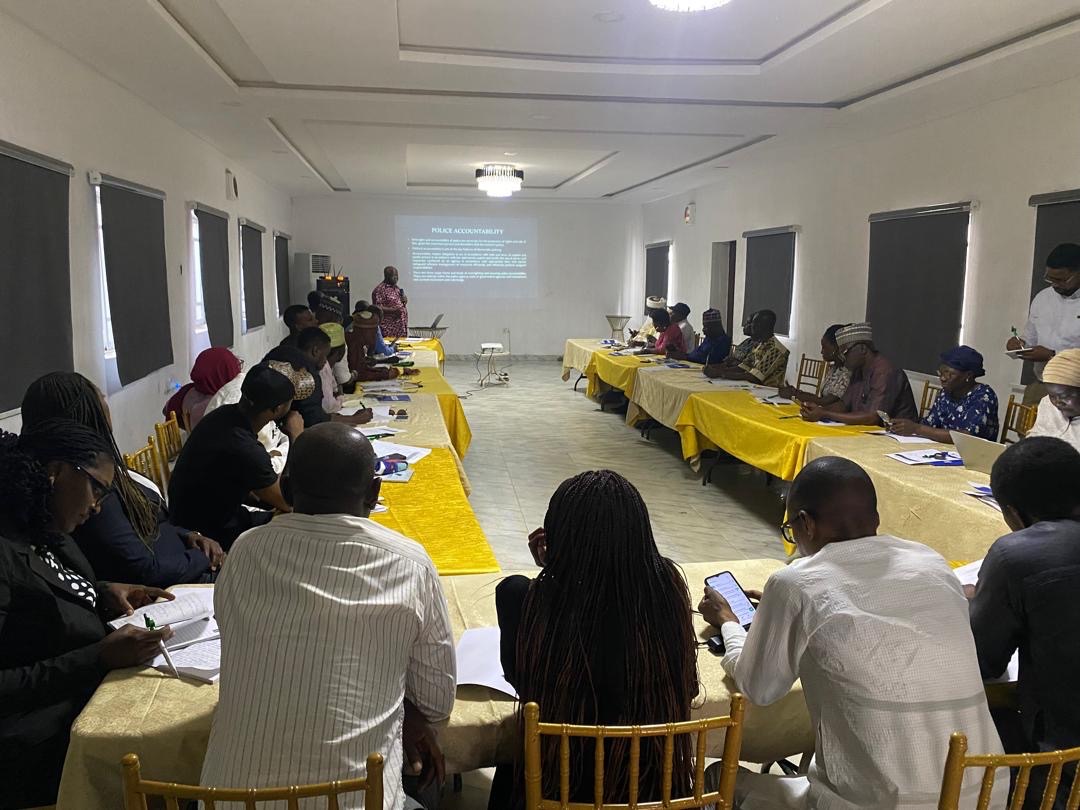
Cross section of the participants at the Workshop.
“Structural and Operational Reforms; Decentralize policing structures to increase responsiveness to local needs.
Leverage technology and innovations like CCTV, biometrics, and data analytics to enhance police effectiveness.
“Eradication of Corruption; Instill a culture of integrity, ethics, and zero-tolerance for bribery and misconduct. Ensure security of tenure and autonomy for police leadership to reduce undue political interference.
“Resource Allocation and Utilization; Increase budgetary allocations for the police and ensure efficient, transparent use of funds. Provide police personnel with necessary tools, equipment, and logistical support to carry out their duties effectively”.
The group, further presented its recommendations (Communique) to the Inspector General of Police (IGP) Kayode Egbetokun through Kwara State Commissioner, Victor Olaiya and stated that implementing the recommendations holistically would help transform the Nigerian police force into a more professional, ethical, and citizen-centric institution”.

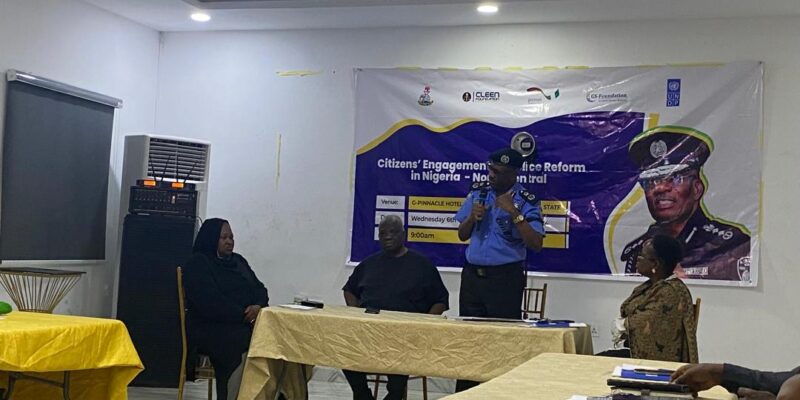


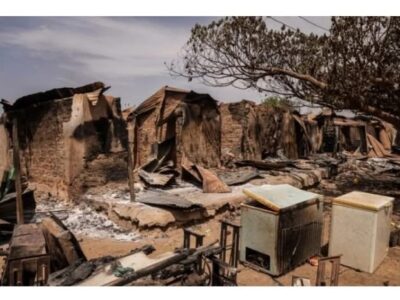

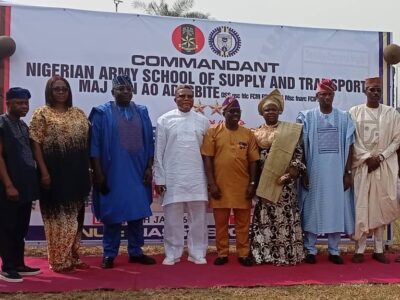

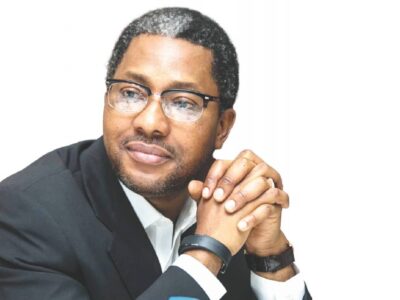

Comments